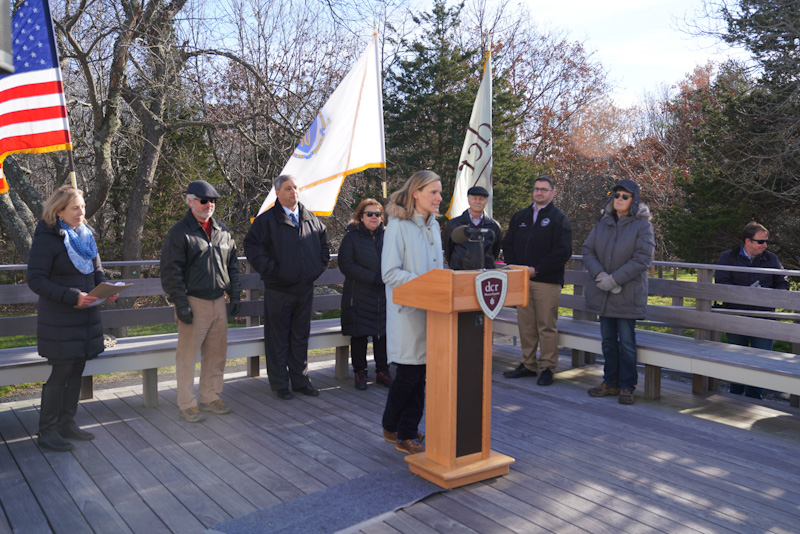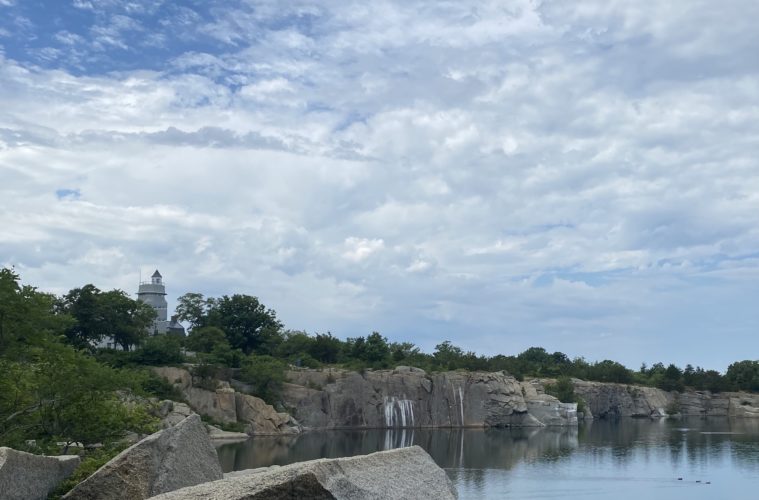After three years of preparation, planning, and construction, the $4.6 million renovation of Halibut Point State Park is complete, featuring updates intended to make the park more welcoming, accessible, and environmentally sustainable. The completion was made official in late November at a ribbon-cutting ceremony attended by state Secretary of Energy and Environmental Affairs Kathleen Theoharides, acting commissioner of the Department Of Conservation and Recreation Stephanie Cooper, and several local officials.
Halibut Point, perched at the northernmost tip of Rockport, is one of Massachusetts’ most popular state parks, offering a combination of stunning natural beauty, fascinating history, and easy access. The centerpiece of the property is the water-filled Babson Quarry, once an active part of the area’s granite industry. The park’s gentle main path circles the quarry, while side trails descend to the rocky waterfront, branch off to scenic outlooks (on a clear day, you can see as far as Maine), and meander through the forest.

One of the main goals of the recent changes was to make the park even easier for all people – no matter their abilities or mobility limitations – to delight in the property. The park’s visitors center, located in a World War II-era barracks, was fitted out with a new ramp entrance as well as a lift to the second floor. A fully accessible trail was added from the parking lot. The observation tower still requires navigating some steep stairs, but a new video feed from the top level allows visitors on the ground floor to see the view without the climb.
The changes at Halibut Point are part of a larger, statewide effort to make public parks more accessible. “By increasing the accessibility of parks, we are ensuring people of all abilities are able to more easily visit these wonderful properties and the many cultural, historical, and recreational resources contained within them,” said Gov. Charlie Baker.
The renovations are also doing their part for the environment. A new, highly efficient heat pump heating and cooling system is expected to save more than 32,000 kilowatt-hours of electricity each year, an amount equivalent to taking five cars off the road. A field near the entrance has been transformed into a wildflower meadow, seeded with native plants that benefit pollinators.
The property was an integral part of Cape Ann’s granite industry from the 1840s. Quarrying ended in 1929 and the quarry quickly filled with water, but remnants of the operation can still be seen around the park. A self-guided walking tour explains the history of Halibut Point and interprets the artifacts around the park. In 1942, the U.S. Army began using Halibut Point as a lookout spot for possible German submarines. The state took over ownership in 1982 and the property became a state park.
For a virtual tour of the updated property and to learn more about its rich history and natural beauty, check out the video tour the Department of Conservation and Recreation has created.

